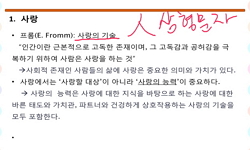I conducted this study based on the Christian belief that the human characteristics shown in the special revelation of the Bible will be further revealed in psychology — a kind of general revelation. In the Bible, human beings are created in God's i...
http://chineseinput.net/에서 pinyin(병음)방식으로 중국어를 변환할 수 있습니다.
변환된 중국어를 복사하여 사용하시면 됩니다.
- 中文 을 입력하시려면 zhongwen을 입력하시고 space를누르시면됩니다.
- 北京 을 입력하시려면 beijing을 입력하시고 space를 누르시면 됩니다.

위니캇(D. W. Winnicott) 이론에서 엿본 하나님 형상과 죄성 = Extracting the Concept of Imago Dei and Sinfulness from D. Winnicott’s Theory
한글로보기부가정보
다국어 초록 (Multilingual Abstract)
I presuppose that human beings would also have such attributes in a limited way and that they would reveal them as God showed them in their relationships with others. I describe how a mother displays love, trust, and righteousness toward her child through the Winnicott theory. I argue that infinity is partially reflected in human fantasy, and that the longing for infinity drives one to attempt to realize this fantasy. I argue that if this force works positively in one’s relationship, it will contribute to expanding love and righteousness toward others. However, if it works negatively, it will suppress the freedom of others and destroy relationships with them. The latter reveals sinfulness, which I later discuss in detail. I use Winnicott's theory as a guide to reducing sinfulness and expanding love and righteousness. I briefly mention the significance of using the Winnicott theory to discuss the image of God and sinfulness.
I conducted this study based on the Christian belief that the human characteristics shown in the special revelation of the Bible will be further revealed in psychology — a kind of general revelation. In the Bible, human beings are created in God's image but have a sinful nature. I explore how these human characteristics are reflected in Winnicott's theory. I first synthesize the existing discussions on the image of God and argue that it should include both attributes and relationships. These attributes of God are classified into love and trust, righteousness, and infinity. Then, I describe how these attributes are revealed in relationships: God reveals love and trust by consistently emptying and giving himself and reveals righteousness by continuously limiting his almighty power.
I presuppose that human beings would also have such attributes in a limited way and that they would reveal them as God showed them in their relationships with others. I describe how a mother displays love, trust, and righteousness toward her child through the Winnicott theory. I argue that infinity is partially reflected in human fantasy, and that the longing for infinity drives one to attempt to realize this fantasy. I argue that if this force works positively in one’s relationship, it will contribute to expanding love and righteousness toward others. However, if it works negatively, it will suppress the freedom of others and destroy relationships with them. The latter reveals sinfulness, which I later discuss in detail. I use Winnicott's theory as a guide to reducing sinfulness and expanding love and righteousness. I briefly mention the significance of using the Winnicott theory to discuss the image of God and sinfulness.
국문 초록 (Abstract)
하나님의 형상으로 창조된 인간도 그런 속성들을 제한적으로 갖고 있을 것이라고 전제하였고 그런 속성들이 하나님께서 타자와의 관계 속에서 보여주셨던 모습과 비슷한 방식으로 드러날 것임을 전제하였다. 그리고 위니캇 이론이 관심을 둔 모자 관계 속에서 엄마가 아이를 향해 사랑과 신뢰 그리고 의의 속성을 어떻게 드러내는지 기술하였다. 그리고 무한성은 부분적으로 인간의 환상 속에 반영되고 무한성을 향한 갈망은 유한을 초월하여 이런 환상을 실현하려는 추동으로 작용함을 주장하였다. 이런 추동이 관계 속에서 긍정적으로 작용하면 사랑과 의를 확장하는 데 기여하고 반대로 부정적으로 작용하면 자신의 자유를 확대하기 위해 타자의 자유를 억압하고 관계를 파괴함을 주장하였다. 그리고 후자가 죄성을 드러냄을 주장하였고 이에 대해 자세하게 논하였다. 그리고 어떻게 죄성을 감소시키고 사랑과 의를 확장할 수 있는지를 위니캇의 이론을 사용하였다. 마지막으로 위니캇 이론으로 하나님의 형상과 죄성을 논한 것에 대한 의의를 간단하게 언급하였다.
연구자는 성경이라는 특별계시에서 보여주는 인간의 특성이 일반계시에 속한다고 여겨지는 심리학에도 드러날 것이라는 기독교 믿음을 바탕으로 본 연구를 진행하였다. 성경에서 보여주는...
연구자는 성경이라는 특별계시에서 보여주는 인간의 특성이 일반계시에 속한다고 여겨지는 심리학에도 드러날 것이라는 기독교 믿음을 바탕으로 본 연구를 진행하였다. 성경에서 보여주는 인간은 하나님의 형상으로 창조된 존재이며 죄성이 있는 존재이다. 연구자는 그런 인간의 특성이 위니캇의 대상관계 이론에 어떻게 반영되어 있는지를 탐구한다. 이를 위해 우선 하나님 형상에 대한 기존의 논의를 종합하여 하나님 형상은 속성과 관계라는 두 요소를 다 포함해야 함을 주장하였다. 그리고 성경에서 기술되고 있는 하나님의 속성을 사랑과 신뢰, 의, 무한성이라는 범주로 분류하였다. 그리고 이런 하나님의 속성이 관계 속에서 어떤 모습으로 드러나는지를 기술하였다. 즉 사랑과 신뢰는 변함없이 자신을 비우고 내어주는 모습으로, 의는 자신의 전능한 힘을 지속적으로 제한하는 모습으로 드러내심을 기술하였다.
하나님의 형상으로 창조된 인간도 그런 속성들을 제한적으로 갖고 있을 것이라고 전제하였고 그런 속성들이 하나님께서 타자와의 관계 속에서 보여주셨던 모습과 비슷한 방식으로 드러날 것임을 전제하였다. 그리고 위니캇 이론이 관심을 둔 모자 관계 속에서 엄마가 아이를 향해 사랑과 신뢰 그리고 의의 속성을 어떻게 드러내는지 기술하였다. 그리고 무한성은 부분적으로 인간의 환상 속에 반영되고 무한성을 향한 갈망은 유한을 초월하여 이런 환상을 실현하려는 추동으로 작용함을 주장하였다. 이런 추동이 관계 속에서 긍정적으로 작용하면 사랑과 의를 확장하는 데 기여하고 반대로 부정적으로 작용하면 자신의 자유를 확대하기 위해 타자의 자유를 억압하고 관계를 파괴함을 주장하였다. 그리고 후자가 죄성을 드러냄을 주장하였고 이에 대해 자세하게 논하였다. 그리고 어떻게 죄성을 감소시키고 사랑과 의를 확장할 수 있는지를 위니캇의 이론을 사용하였다. 마지막으로 위니캇 이론으로 하나님의 형상과 죄성을 논한 것에 대한 의의를 간단하게 언급하였다.
동일학술지(권/호) 다른 논문
-
결핍의 의식(deprivation cult)과 우울증: 코로나 이후 우울한 영혼 돌봄과 목회상담
- 한국목회상담학회
- 하재성
- 2023
- KCI등재
-
몸의 소리를 듣다: 새로운 목회 패러다임을 위한 트라우마와 목회상담
- 한국목회상담학회
- 이희철
- 2023
- KCI등재
-
위드 코로나 시대 새 목회적 돌봄 모델로서 ‘텃밭정원’ 생태요법 연구
- 한국목회상담학회
- 정다은
- 2023
- KCI등재
-
- 한국목회상담학회
- 김경희
- 2023
- KCI등재





 KCI
KCI KISS
KISS






